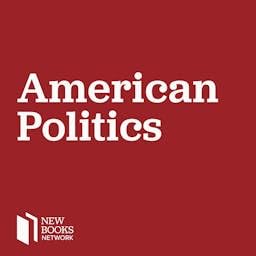In the United States, the stoicism and importance of the “working class” is part of the national myth. The term is often used to conjure the contributions and challenges of the white working class – and this obscures the ways in which Black workers built institutions like the railroads and universities – but also how they transformed unions, changed public policy, and established community. In Black Folk: The Roots of the Black Working Class (LIveright, 2023), Dr. Blair LM Kelley restores the Black working class to the center of the American story by interrogating the lives of laundresses, Pullman porters, domestic maids, and postal workers. The book is both a personal journey and a history of Black labor in the United States from enslavement to the present day with a focus on a critical era: after Southern Emancipation to the early 20th century, when the first generations of Black working people carved out a world for themselves. Dr. Kelley captures the character of the lives of Black workers not only as laborers, activists, or members of a class but as individuals whose daily experiences mattered – to themselves, to their communities, and to “the nation at large, even as it denied their importance.” As she weaves together rich oral histories, memoirs, photographs, and secondary sources, she shows how Black workers of all genders were “intertwined with the future of Black freedom, Black citizenship, and the establishment of civil rights for Black Americans.” She demonstrates how her own family’s experiences mirrors this wider history of the Black working class – sometimes in ways that she herself did not realize before writing the book. Even as the book confronts violence, poor working conditions, and a government that often legislated to protect the interests of white workers and consumers, Black Folk celebrates the ways in which Black people “built and rebuilt vital spaces of resistance, grounded in the secrets that they knew about themselves, about their community, their dignity, and their survival.” Black Folk looks back but also forward. In examining the labor and challenges of individuals, Dr. Kelley sheds light on reparations and suggests that Amazon package processing centers, supermarkets, and nursing homes can be spaces of resistance and labor activism in the 21st century. Dr. Blair LM Kelley is the Joel R. Williamson Distinguished Professor of Southern Studies at the University of North Carolina-Chapel Hill and incoming director of the Center for the Study of the American South, the first Black woman to serve in that role in the center’s thirty-year history. She is also the author of Right to Ride: Streetcar Boycotts and African American Citizenship in the Era of Plessy v. Ferguson from the University of North Carolina Press. Dr. Kelley mentions Dr. Tera W. Hunter’s To ‘Joy My Freedom: Southern Black Women’s Lives and Labors After the Civil War, Duke University’s Behind the Veil oral history project, and Philip R. Rubio’s There’s Always Work at the Post Office: African American Postal Workers and the Fight for Jobs, Justice, and Equality. Learn more about your ad choices. Visit megaphone.fm/adchoices
Más
Menos
 45 m
45 m 1 h
1 h Jan 25 202650 m
Jan 25 202650 m 57 m
57 m Jan 22 20261 h y 19 m
Jan 22 20261 h y 19 m 44 m
44 m 1 h y 23 m
1 h y 23 m 55 m
55 m
